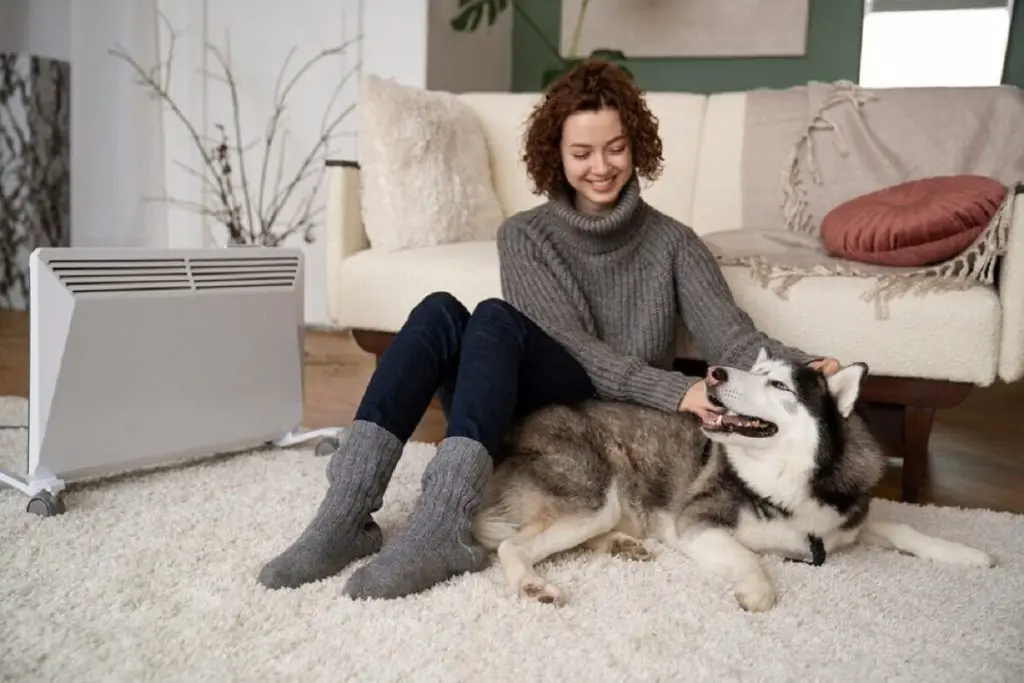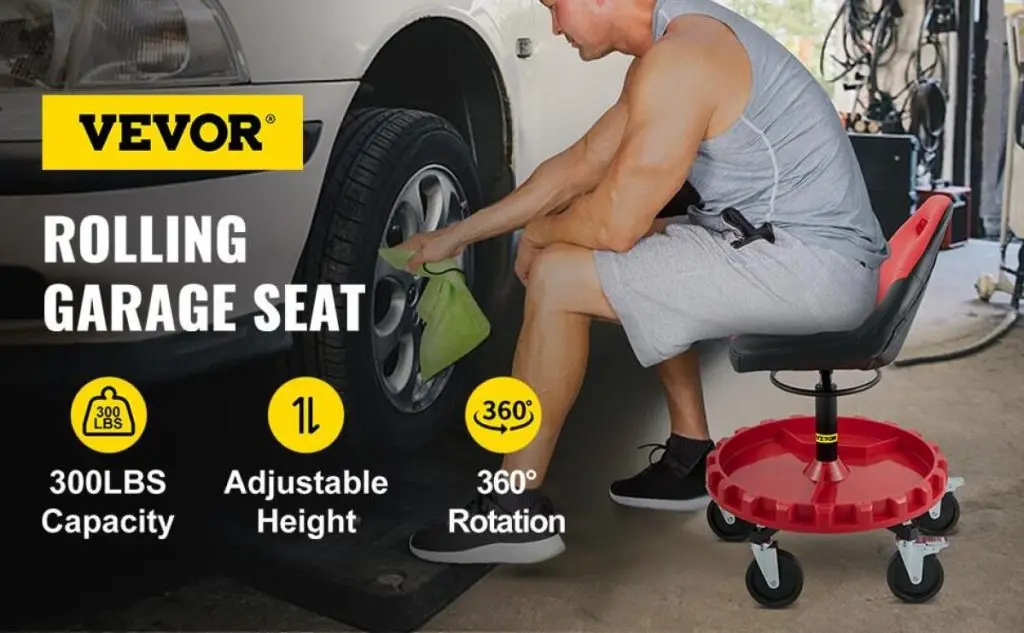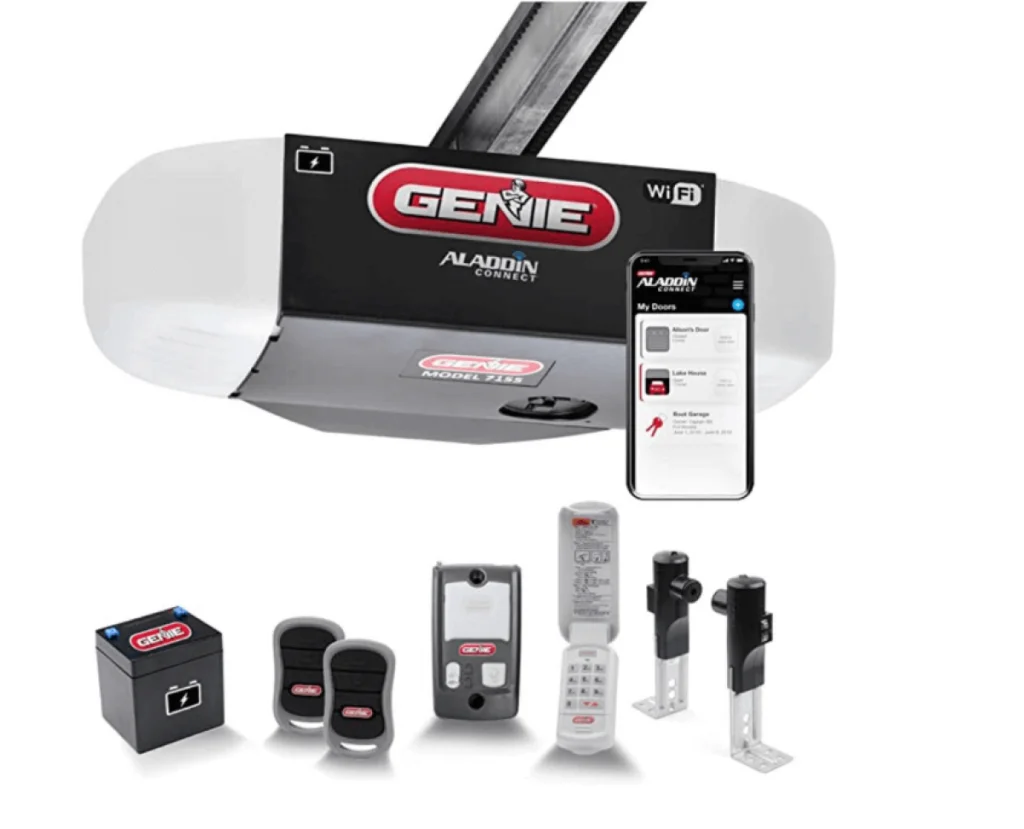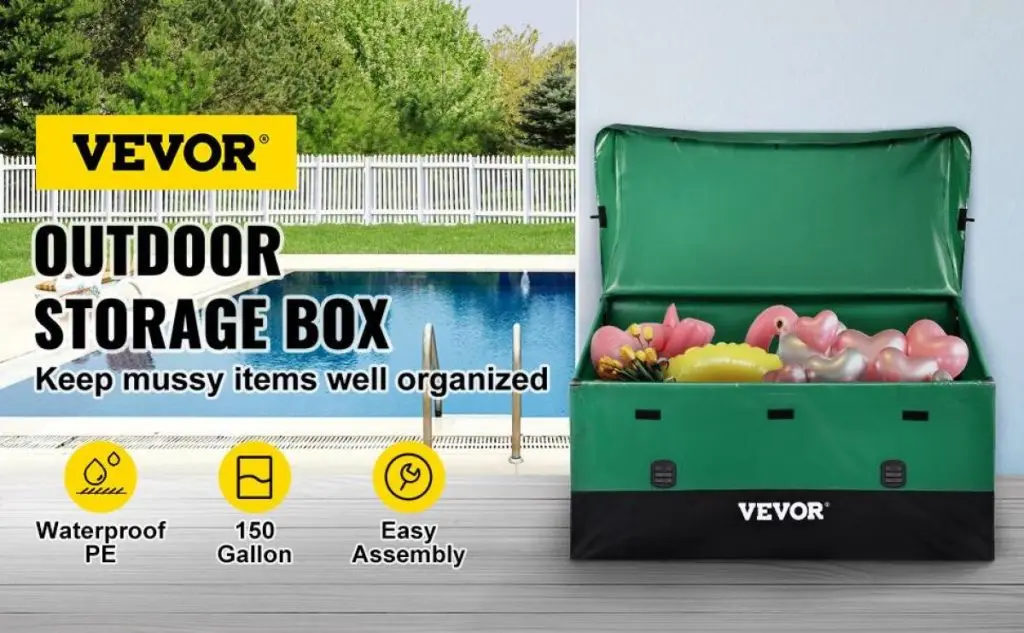Diesel air heaters are extremely versatile, efficient, and an effective heating solution that is used in mobile homes, trucks, cabins, and boats, among many others. They use diesel fuel sources to give fast and steady heat output and are suitable for locations in polar regions.
The guide aims to discuss the possibilities of diesel air heaters and major choices – VEVOR models, with a focus on their benefits, and how to install the equipment. No matter whether you are planning to buy a diesel air heater for your car or truck, your workshop, or your home, this guide will give you all the material you need to make the right decision.
Table of contents
What is a Diesel Air Heater?
A diesel air heater is a type of heating system whereby the source of heat is diesel fuel which is used to produce warm air. It comes by burning diesel in a combustion chamber, which generates heat, and then, the heat generated is circulated with the help of a fan all over the space.
These heaters are small, energy-efficient, and perfect for areas such as spots that are mobile or in cabins, and other areas where people cannot use conventional heaters.
The main use of diesel air heaters is to produce heat in areas that need steady, consistent heat, particularly during frosty seasons. They are commonly utilized in RVs, trucks, boats, and all other car types where transportable heat is required. Other diesel air heaters are also very suitable for summer houses, log cabin offices, or other buildings that are not connected to a central heating system.
Common Uses
Diesel air heaters are commonly used in a variety of settings:
- RVs and Campers: Diesel air heaters can be used to heat mobile living areas effectively.
- Trucks: These heaters are used by long-haul truck drivers to warm the cab during nighttime convoys or during long-distance transport.
- Boats: Diesel heaters help maintain comfortable temperatures in marine environments.
- Off-Grid Cabins: For those living in remote locations, diesel air heaters offer a dependable solution to combat cold temperatures.
Why You Need a Diesel Air Heater
Key Benefits
- Fuel Efficiency: Diesel heaters are excellently efficient because they utilize a higher percentage of diesel fuel to give out heat energy. This implies they offer longer operating time with a smaller quantity of fuel than most other sorts of heaters making them a cheaper choice for lengthier use.
- Compact Design: Diesel air heaters have a compact size and rather low weight, thus making it possible to install them in rather narrow spaces, for example, in vehicles or small cabins. They are perfect for those who have a small piece of land, or a piece of land that will not support large RVs, for people who like traveling with their homes, or like living off the grid.
- Reliability in Cold Climates: There are no problems using diesel heaters in severe cold as it is employed in the heating system of most vehicles. They must be operated in low temperatures and can readily produce heat for use whether in a condition of below freezing. This makes them perfect for application in areas with hard winters.
Best Use Cases
- RVs and Mobile Homes: The diesel air heaters are ideal for maintaining a satisfying living climate in an RV, so travelers can stay warm and comfortable during their trip.
- Trucks and Commercial Vehicles: Diesel air heaters are commonly used by long-haul truck drivers who require heating to warm the cabin when the motor vehicle is off during the night, so as not to make the cabin uncomfortable and cold.
- Boats: One of the more popular warm air heaters for use in water contexts is the diesel air heaters especially German boats for use both in warmer and cooler climates making them conducive while on the water.
- Off-Grid Settings: In cases where people have structures such as individual homes or cabins that cannot be connected to other forms of heating like mainframe heating, it is recommended to use diesel air heaters when the climate is chilly.
How a Diesel Heater Works
Basic Mechanism
The primary operation of a diesel air heater revolves around a combustion section in which diesel fuel is combusted to heat the air. This process starts when the heater is switched on, and the fuel pump pulls diesel from the tank.
The fuel is then atomized and ignited in the combustion chamber where the air and fuel mixture occurs. As the fuel burns, the heat is transferred to the surrounding air, which is then circulated by an internal fan throughout the space.
Key components of a diesel air heater include:
- Fuel Pump: Draws diesel from the tank and delivers it to the combustion chamber.
- Combustion Chamber: Where the diesel is burnt generating heat.
- Heat Exchanger: Conveys the produced heat to the surrounding air.
- Fan: Moves the warm air all across the area in the building or home in question.
Advantages of Diesel Heating Systems
- Low Power Consumption: Diesel air heaters are powerless devices that are very efficient and most of the models on the market require a small amount of electricity to run. This makes them perfect to be used in off-grid connections primarily in remote areas or places where power is scarce.
- Eco-Friendliness: Although diesel fuel is by no means the most environmentally friendly fuel available, today’s diesel air heaters are made to burn the fuel in a much more efficient and clean-burning manner. They are compared to older, less efficient models, and are far more efficient at heating while not emitting as much smoke.
Best VEVOR Diesel Air Heater Models
5kW Model
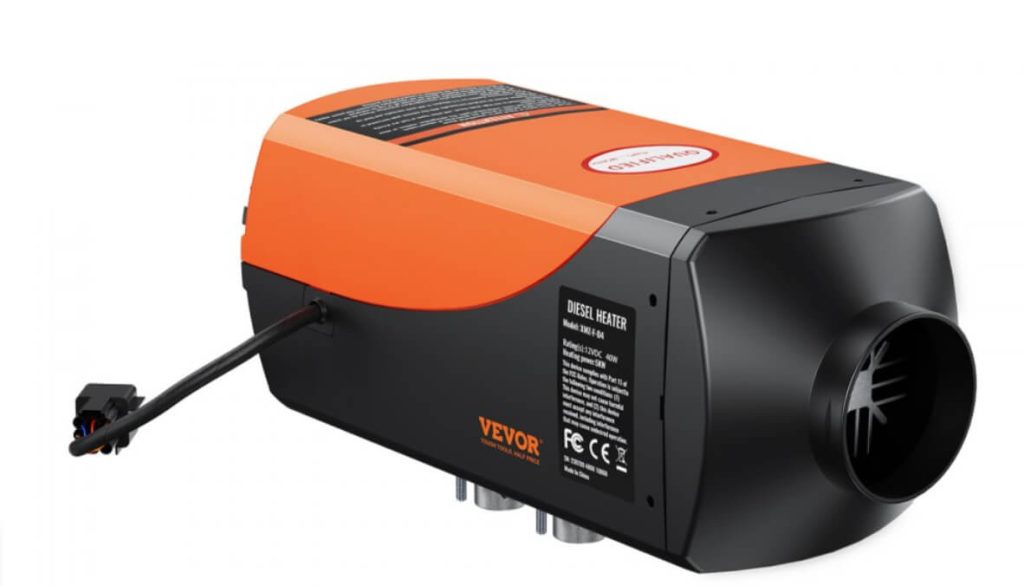
Key Features
The VEVOR 5kW Diesel Air Heater is on the list of the most popular models that are available for buyers. Thus, it is suitable for small to medium areas because of its compact nature. It features a touch control panel, silent fan, and highly effective combustion system that makes it easy for the heater to heat up very quickly without consuming a lot of fuel.
Recommended For Your Project
Performance Highlights
- Efficient Heating: Provides a steady 5 kW of heat, which is perfect for heating RVs, trucks, or smaller cabins.
- Quiet Operation: The VEVOR 5kW model works silently, thus, it is perfect for areas that require little to no noise.
- Low Fuel Consumption: This model consumes very little fuel, 0.16 liters an hour for diesel, and this will be ideal for long-term consumption.
Customer Experiences
Users consistently praise the VEVOR 5kW Diesel Air Heater for its reliable performance and ease of installation. Customers report that it efficiently heats their spaces without consuming excessive fuel. Some have noted that the heater works exceptionally well in extremely cold weather conditions.
VEVOR 8kW Model
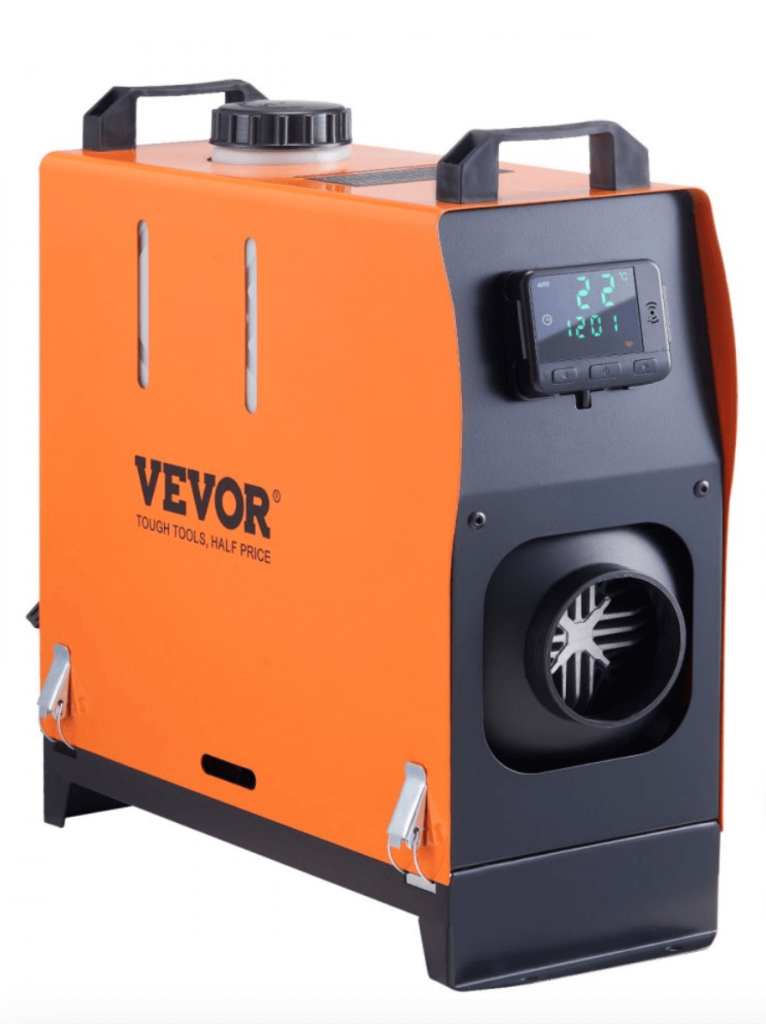
Key Features
Thanks to its improved combustion chamber and fine fuel pump, the VEVOR Diesel Air Heater All-in-one 12V 8KW can heat bigger RV’s trucks and/or workshops. It also has its heat output and fan settings adjusted in the range of 5 levels, thus granting users full control of heat.
Recommended For Your Project
Performance Insights
- Higher Heating Capacity: The 8kW model gives out more heat and can be used in big rooms or where it will be required for a long time.
- Efficiency: This one has more heating power than the previous model, but it still burns a little more fuel, although the difference is not very significant and is nearly equal to the fuel consumed by the 5kW model.
- Robust Construction: Built for durability, this model can withstand harsh conditions, making it suitable for commercial and industrial applications.
Comparison with 5kW Model
While both models offer excellent fuel efficiency, the main difference lies in the heat output. The 5kW model is better suited for smaller spaces, while the 8kW model is designed to handle larger areas. The 8kW model is ideal for users who need extra power for larger vehicles or spaces.
Customer Feedback
Many customers have found the 8kW model to be perfect for heating larger trucks and workspaces. The additional heating power and fuel efficiency make it a great investment for users who require high performance over extended periods.
How to Install a Diesel Air Heater
Tools and Materials Needed
Before you begin the installation process, gather the following tools and materials:
- Diesel air heater unit
- Fuel tank and fuel line
- Mounting brackets and screws
- Wiring tools (pliers, wire cutters, etc.)
- Exhaust pipe and fittings
- Drill and screws for securing the unit
Step-by-Step Installation Process
- Choose a Location: Choose a place in your home where the heater can draw adequate ventilation and where it will be convenient to obtain more fuel.
- Mount the Heater: At the bottom end, there are mounting brackets where you can screw the heater to either the wall or the floor.
- Connect the Fuel Line: Fit the fuel line to the heater’s fuel inlet and join the fuel line to the fuel tank.
- Install the Exhaust Pipe: Screw the exhaust pipe to the outlet of the heaters’ exhaust and make certain that the pipe directs the exhaust out of the space.
- Wire the Heater: Couple the wiring to the heater and to the supply source.
- Test the Heater: After installing the heater, turn it on and see if possible and check on its operation.
Installation Tips
- Make sure the unit is fixably installed to prevent the problem of vibration.
- Before starting the heater ensure you look for any signs of leakage in the fuel line.
- But you have to be careful when operating the machine, and adhere strictly to the manufacturer’s recommendation and safety procedures while setting up the machine.
Troubleshooting Diesel Air Heaters
Common Issues and Solutions
- Startup Problems: Even if the heater will not turn on, then the supply of fuel should be checked and the ignition should also be examined.
- Uneven Heating: This can be attributed to blocked air vents or insignificant fuel flow. Inspect the system and clean filters as needed.
- Excessive Noise: If the heater you are using is very noisy then you should just look for parts that are loose or any form of debris trapped in the fan.
Maintenance Tips for Longevity
- Regular Cleaning: Make sure to clean the combustion chamber and air filters frequently to restore high efficiency every time for proper running.
- Fuel Quality: Always ensure that you use high-quality Diesel fuel in order not to block the system.
- Periodic Inspections: Oversee the viability of the heater with specific cues on the fuel lines and electricity parts of the heater.
FAQs
- Can I use any diesel fuel with my heater?
It is recommended to always use clean high quality diesel fuel for your heater. Impurities in fuel, that is, low-quality fuel, lead to blockage, decreased performance, and, at times, system destruction. It is, however, recommended that one should use premium fuel in order not to have a challenge with the heater, and its durability is also increased.
- Are diesel heaters noisy?
Most diesel heaters are intended to be quiet, especially the current versions such as VEVOR 5kW and VEVOR 8kW. Nevertheless, various kinds of noise will always be produced based on combustion and airflow. Regular maintenance can help minimize noise levels for quieter performance.
- How long will a diesel air heater last?
A diesel air heater can last for many years with proper care. Regular maintenance, such as cleaning and replacing filters, is essential. With good upkeep, it can consistently provide reliable heat in challenging environments for a long time.
Conclusion
Diesel air heaters are an excellent solution for providing reliable heat in cold environments. VEVOR’s models, including the 5kW and 8kW options, are known for their efficiency, durability, and ease of installation. Whether you’re outfitting an RV, truck, or cabin, a VEVOR diesel air heater is a smart investment to keep your space warm and comfortable. Make the switch to VEVOR and experience the benefits of efficient, portable heating today!

